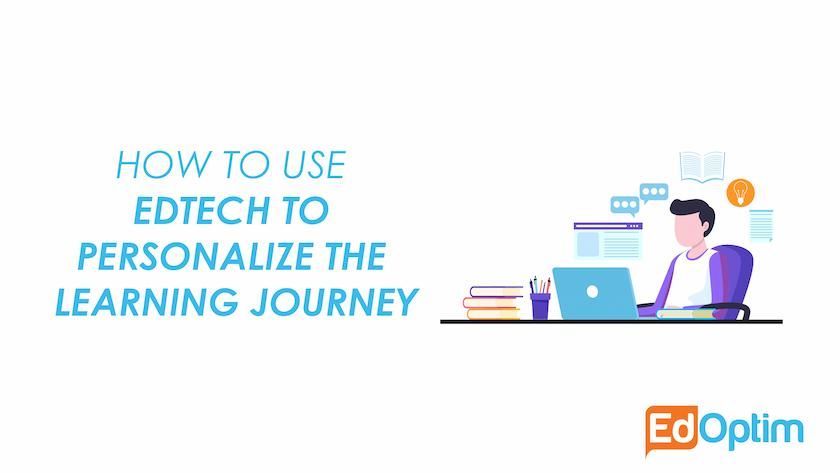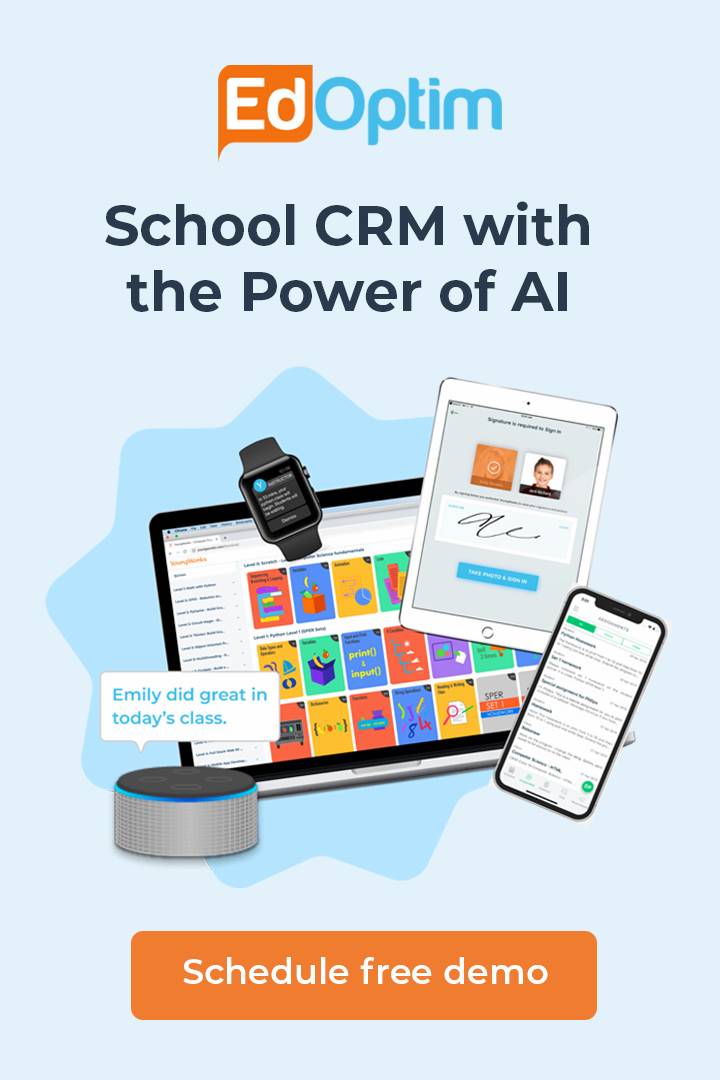Mar 18, 2024 By Team EdOptim *
Evolution of EdTech
The evolutionary trajectory of EdTech is a fascinating journey that spans decades, marked by transformative milestones. From the introduction of computers in education to the era of CD-ROMs and interactive whiteboards, each phase has contributed to the refinement of educational technology. For example, the advent of personal computers in the 1980s marked a turning point, empowering students to engage with educational software designed to cater to their unique needs and preferences.
Benefits of EdTech in Education
The following are some of the benefits of EdTech in Education:
- Personalized Learning: The concept of personalized learning has been redefined by EdTech, exemplified by platforms like Khan Academy. These adaptive learning platforms analyze individual student performance, providing tailor-made content and pacing to suit diverse learning styles.
- Student Engagement: Platforms such as Kahoot! and Quizizz have successfully incorporated gamification elements into the learning process. By transforming traditional lessons into interactive games, these platforms not only make learning enjoyable but also capture and sustain students' attention.
- Accessibility: EdTech solutions, including platforms like Coursera and edX, have transcended geographical limitations. This democratization of education ensures that quality learning experiences are accessible globally, fostering a connected community of knowledge seekers.
- Real-time Assessment: Learning Management Systems (LMS) like Canvas and Moodle equip educators with real-time assessment tools. These tools provide instant feedback and data-driven insights into student progress, fostering a responsive and dynamic educational environment.
Understanding Personalized Learning
Personalized learning signifies a departure from the traditional one-size-fits-all approach. It is an approach that recognizes and adapts to diverse learning styles, abilities, and interests. EdTech stands at the forefront of making this vision a tangible reality.
EdTech employs adaptive algorithms to cater to varied learning preferences. For instance, a visual learner might find educational software with rich graphics more conducive to their learning, while an auditory learner may gravitate towards content that integrates engaging audio components.
Role of EdTech in Personalizing Learning Paths
Here are a few key ways EdTech boosts personalized learning:
- Adaptive Learning Platforms: The ascent of platforms like DreamBox and Smart Sparrow attests to the potential of adaptive learning. These platforms dynamically adjust the difficulty of questions based on a student's performance, ensuring a uniquely tailored learning experience.
- Customizable Content: Tools such as Google Classroom empower educators to create and modify content according to the specific needs and learning objectives of their students. This fosters a dynamic and responsive teaching environment that resonates with the evolving nature of education.
- Data-Driven Insights: EdTech solutions, particularly analytics tools integrated into platforms like Blackboard, generate valuable data. Educators can leverage this data to identify areas of improvement, customize interventions, and track individual progress effectively.
How do students engage through technology?
Here's how students are getting into tech nowadays:
- Gamification: Educational software like Minecraft: Education Edition and Classcraft seamlessly integrate gaming elements into the learning process. Beyond enhancing engagement, gamification promotes healthy competition and collaboration among students, imparting a sense of excitement to the educational journey.
- Virtual Reality (VR) and Augmented Reality (AR): EdTech takes a quantum leap with immersive experiences. Apps such as Google Expeditions utilize VR to transport students to virtual worlds, providing a unique and interactive approach to learning that transcends traditional methods.
- Online Discussions: EdTech platforms like Edmodo and Flipgrid create virtual spaces for students to engage in discussions, share ideas, and learn collaboratively. This not only breaks down physical barriers but also fosters inclusivity by providing a platform for diverse voices to be heard.
- Group Projects: Learning Management Systems such as Schoology facilitate the organization and coordination of group projects. This not only promotes teamwork but also hones communication skills and instills a sense of shared responsibility among students.
What are the challenges and considerations in using EdTech for personalized learning?
Here are a few things to think about when diving into personalized learning with EdTech:
- The digital divide poses a formidable challenge in ensuring equal access to EdTech resources. Initiatives like the "One Laptop per Child" project and community-based programs strive to bridge this gap, ensuring that underprivileged students have access to the tools necessary for digital learning.
- Policymakers and educators must collaborate on developing strategies to ensure the benefits of personalized learning through EdTech reach all students, irrespective of socio-economic backgrounds.
- The escalating reliance on EdTech underscores the critical importance of data privacy. Platforms like Clever and ClassLink prioritize robust security measures, ensuring that sensitive student information remains protected and fostering a secure learning environment.
What are the Future Trends and Innovations in the EdTech World?
Here's what's coming up in the EdTech world:
- Artificial Intelligence (AI): AI-driven platforms like Carnegie Learning exemplify the potential of artificial intelligence in education. These platforms adapt to individual learning styles, providing personalized feedback and recommendations that not only enhance the learning experience but also assist educators in tailoring their teaching approaches.
- Blockchain in Education: Blockchain technology, showcased in projects like Sony Global Education's platform, offers secure and transparent verification of academic credentials. This ensures the integrity of educational records and lays the groundwork for a more reliable and tamper-proof educational infrastructure.
What is the Role of Educators in the Digital Era?
The role of educators in the digital era is transformative. Educators play a pivotal role in integrating EdTech effectively into the learning process. Training programs, such as Google's Certified Educator courses, empower teachers to navigate the digital landscape and harness technology to its full potential.
Recognizing the evolving nature of the educator's role, ongoing professional development becomes imperative. Institutions can invest in comprehensive workshops and online courses to equip teachers with the latest tools and strategies for effective EdTech integration, ensuring that they remain at the forefront of educational innovation.
Conclusion
As we navigate the complexities of the 21st-century educational landscape, the adoption and integration of EdTech for personalized learning stand out as a transformative force. The symbiotic relationship between innovative technologies and pedagogical expertise creates a dynamic and engaging educational experience. By proactively addressing challenges, advocating for inclusivity, and embracing emerging trends, educators can unlock the full potential of EdTech, ensuring that personalized learning becomes an enduring cornerstone in preparing students for the challenges and opportunities that lie ahead.
*Contributors: Written by Sai Sandesh; Edited by Rohit Budania; Lead image by Shivendra Singh

